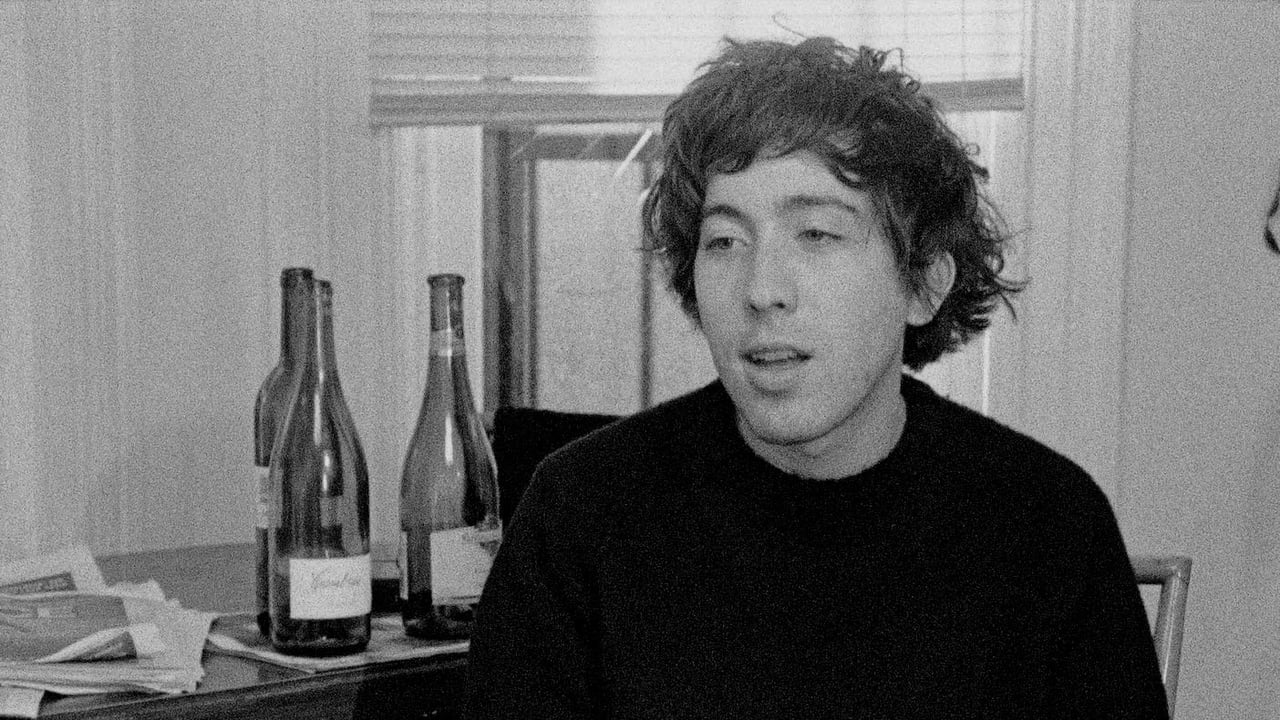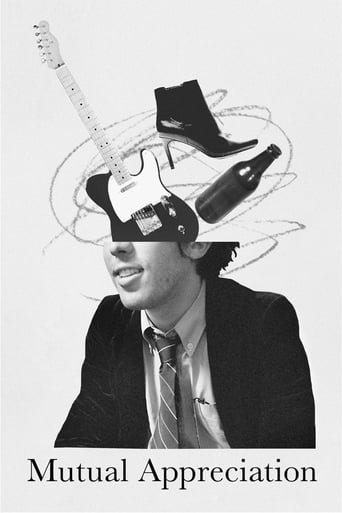

First off, similar to what the highlighted review commented on, I definitely respect the people that made and that were in this movie. No question that it was an honest depiction of these people, or people like these people. It felt like I was legitimately a fly on the wall, watching and listening in for every scene of their real life.That's good and bad, obviously. I appreciated it for what it was. I don't think it was trying to entertain at all, and that was fine, just know that going into it. My one minor gripe with it was all the damn stops and starts in the dialogue. The characters would stammer and restart their sentences, or not complete their original thoughts, a lot. Again, minor, it just bugged me. These are likable people, I thought, but their level of confidence was frustrating at times. Then again, they came off as smart, insightful, sometimes funny, real people that seem like they'd be great real-life friends.And that seems to be what the movie is about, ultimately.The friendship and real-life situations of three people. Nothing more, nothing less.
... View MoreAt times, this picture feels like a slimmed down Jean Eustache film or an extremely modest variation of Francois Truffaut's ''Jules et Jim." You're forced to wonder what more money or a bigger vision might have produced. While it's true that the characters here have slim ambitions, you consequently have to wonder -- even while remaining devoted to his uncannily subtle skill with character -- what else Bujalski has up his sleeve. A panning shot, perhaps? ''Mutual Appreciation" is his first New York film (''Funny Ha Ha" was set in Allston), and the world he's captured is true to Alan's hipster dreams and indie-rock goals. The character's emotional dial is set on ''emo," which means he lacks the social constitution to articulate himself. He's passive, aimless, and occasionally narcissistic. See Alan unhook himself from Sara (Seung-Min Lee), a cute radio DJ, without it costing him her brother, who's his temporary drummer. And watch as he carries on a flirtation with Ellie, who's also attracted to him. Her emotional intelligence, however, is superior. The women in ''Mutual Appreciation" are confident and direct. The men can be exasperatingly meek.''Funny Ha Ha" was about a stalled 20-something and her romantic entanglements. (The woman who played her, Kate Dollenmayer, has a too-small part here.) ''Mutual Appreciation" is the second chapter in what seems like Bujalski's statement about people trying to find the right words as they move toward adulthood and negotiating their fears of commitment of any kind -- to a job, a person, or a complete thought. He could have called this movie ''A Tentative Yes." Of course, that title should do nothing to stop you from making an absolute commitment to see this film.Wesley Morris
... View MoreHere's a drama of sorts, done up in grainy, black & white, faux verité style to simulate a documentary of a moveable feast of trust children and other well heeled, well educated slackers, all Brooklyn apartment denizens, whom we follow around during their standard issue daily lives. I suspect - though I don't know and haven't read - that the actors were told the general arc of the film and assigned broad outlines of their characters (maybe they even helped to develop them: the method of the English director, Mike Leigh), then allowed to ad lib within those limits. The dialogue surely has that feel.The major subtext here is friendship. The action, if you can call a long series of sedentary conversations that, centers around a trio of characters: Lawrence (Andrew Bujalski, also the writer-director), his girlfriend Ellie (Rachel Clift), and Lawrence's long time best friend Alan (Justin Rice), who has just come to town after his rock band, "The Bumblebees," had broken up in Boston. A crackle of attraction fills the air between Ellie and Alan, and a lingering issue throughout the film is what will develop between them, and what will become of Lawrence's ties to both.The principals and their friends prattle on about such crucial matters as the iron deficiency that can develop from vegan diets (Alan's friend's solution to this was: eat meat); honesty; what to do after someone kisses you; making pop music and performance art; taking "proactive control of one's destiny," as Ellie puts it to Lawrence at one point; obtaining and smoking good weed and occasionally maybe scoring some cocaine, though it's not a big deal; hitting Dad up for dollars; Buddhism; elliptical references to some other people - erstwhile close chums - getting married. .Those are the searingly important issues of the day for these young adults. Nothing about politics, social or global issues. Not a word about career, except for Alan's aspirations to make it as a rocker (Mr. Rice has an arresting singing voice with a faintly Irish lilt to it). The talk goes on and on for 110 minutes. It's "My Dinner with Andre," without Andre. And without dinner. No arc. No resolution. No character changes. Not even an interesting idea or two. Just slices of daily life, like I said. The whole enterprise feels (a) realistic and (b) boring, agonizingly boring.One saving grace is Mr. Rice, whose Alan is a shy, beguiling, endearing rogue of a fellow for sure. The other thing is absence of cigarettes. For the longest time I thought this would be a fag-free movie, and it almost is. Only in the 85th minute was one cigarette smoked, shared between Ellie and Alan as a sort of 40s style sexual signal. And not again. This film is marginally better than Lila Yomtoob's recent movie "High Life," about the same Brooklyn-dwelling, beer drinking young slacker social set.My partner and I have ties to a group of "younger" adults, now approaching 40, who attended college together and then migrated more-or-less as a group to San Francisco, where most of them continue to live. Their bonds remain palpable and enduring. A dozen years ago their daily lives might have looked, to an outside viewer, a lot like the people in this film. Today it's different, but only in some respects. Most have solved the problem of vocation, one way or another, and they are more interesting than the 20-somethings because of it.One has followed a traveling circus, becoming proficient as a sword swallower. When not on the road he lives in a warehouse by the Bay with his partner, a woman who arranges sets for the opera. Another flies in for parties from D.C., where he now works for the IMF. Yet another is an agronomist who is about to finish law school, and one sells art at an upmarket gallery near Union Square. Our friend, who has lived in Japan and studied Butoh dancing, is now a freelance, self-taught finish carpenter and fine cabinet maker.Our friend only became political in his early 30s, shifting dramatically from indifference to activism. In terms of their intimate lives - their capacities to establish and sustain romantic or conjugal relationships - it's still a much more mixed picture for our friend's group. Some have married, others not. For several, although they are highly personable individuals, "permanent" love relationships still remain just beyond their reach.I bring up this group not so much to suggest those things that may and may not change as singles move from their 20s into their 30s, but primarily to make a very different point. Our friend's friends would have no interest in or even knowledge of us, nor is it likely that we would know or care about them, fascinating people though they are, were it not for the connections the social network that exists through our friend. He was my stepson's dearest chum in childhood; my partner has known him since he was 5, and I have enjoyed his company for over 10 years. It is because of our friend that his circle interests us so.To sharpen the point, there are only two reasons for anybody to care about the group of kids in this movie: (a) you identify with them: you're a kid yourself, in fact or in terms of your own psychological makeup; or (b) one of them IS your daughter, son, or a longstanding friend of theirs. For everybody else, and that's most of us, this film basically sucks. My grades: 5/10, C. (Seen on 02/09/06).
... View MoreI haven't really seen a film like this before. Really raw, somewhat rambling, confusing and wonderful. I have never been so pulled in. God, I hope this is the future of film. Enough already of Pirates and Snakes on a Plane.... This held such power. All in it being understated and real. I don't often come here to write on films I've seen, but when a movie sticks with me for a good five days, that's my signal to get onto the IMDb. I also just watch the movie DIG! about the Brian Joenstown Masacre -- I went out and bought a double best of album....M.A. has great music too So, If you like rough-around-the-edge,s realistic film-making, go. Now. This is the real deal. Bobbi Stig
... View More